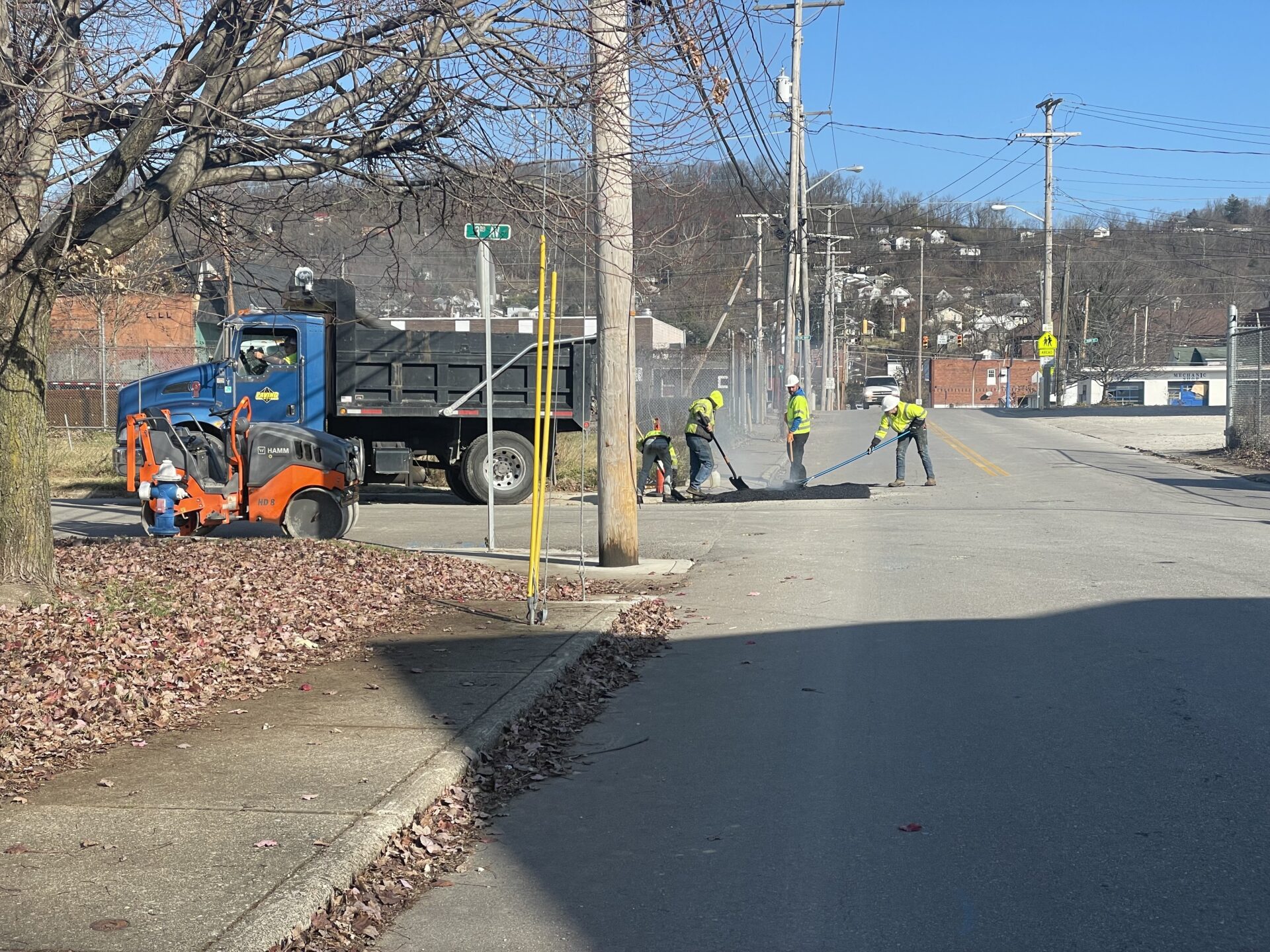Mountaineer Gas said it has restored 100 percent of water-filled gas lines on the West Side of Charleston. However, many residents are still without heat, and the outages are taking a toll on the community.
One of those residents is Margaret Mahr, who sat in her home with an overcoat on and space heaters placed around the room.
The temperature outside was 28 degrees. Her floors were still ice cold from the 18 days she has spent without heat.
She had a technician visit her house that day for the fourth time. He was able to get her furnace running but later that evening it went out again.
At the time of publication, she said she still does not have heat or hot water.
“You hear on the news, ‘Oh, 1,100 people are all set now, the heat’s on,’ you know,” Mahr said. “It makes me angry when I see that on the news. We are still suffering over here.”
The gas outage lasted around two weeks and affected 1,500 Mountaineer Gas Company customers. It was caused by a West Virginia American Water line break. The water infiltrated the gas lines.
Mountaineer Gas said the 46 miles of gas lines affected have been drained and fully restored. However, many home appliances like water heaters, furnaces and stoves were damaged or destroyed when water entered the gas lines. Many households, like Mahr’s, are still without hot water or heat.
Jay Marino owns one of the contracted companies responsible with getting water damaged appliances fixed or replaced. His office’s garage was filled with boxes of new water heaters and furnaces. Outside, he had dozens of water destroyed appliances that his crew took out of homes.
Credit: Briana Heaney/West Virginia Public Broadcasting
“That’s the extreme, you never see this. You never see this volume,” Marino said walking through his gated lot looking at the broken appliances.
Since the early days of the outage, his company has been carrying triple the case load they normally do.
He said his teams have been working nonstop.
“They’re tired. They’re working 14-15 hours a day,” Marino said. “They haven’t stopped in two weeks. They worked through Thanksgiving. We gave them a couple of hours off for dinner and then they’re back at it.”
The West Side, where the gas outage occurred, is a lower income neighborhood of Charleston with a high percentage of residents who are people of color.
Mahr said she believes that other more affluent areas would have had a different response, but because of preconceived notions about her neighborhood she thinks the crisis has not been treated with urgency — leaving her and other residents in the cold.
“Because it’s the West Side, we’re still sitting here. You know what I’m saying?” Mahr said.
Credit: Briana Heaney/West Virginia Public Broadcasting
On Saturday, Nov. 25, Khaly Le’s house burned down after multiple portable heaters were attached to the outlet by an extension cord, which became overloaded and caused the fire. She said she had to jump out of the second-story window with her son.
Both were hospitalized after and have third degree burns all on their bodies. The fire left two others homeless.
She said the American Red Cross gave her $600 for a hotel. She said she has not heard anything from the gas company since the fire.
On Nov. 21, the Charleston City Council wrote a letter to the state Public Service Commission (PSC) asking them to delay or reject a proposed four percent rate increase for Mountaineer Gas and a one percent increase for West Virginia American Water.
“While this small action would not make the West Side residents whole, it would at least allow them to avoid another drastic rate increase, as they are still recovering from a severe service interruption that was costly to them,” the letter said.
City Councilman Larry Moore signed the letter. His entire district was without gas.
Moore said the cost to people’s health, and property, as well as the likely increase in people’s utility bills due to the use of portable heaters are all reasons why the PSC should consider waiting to approve an increase.
“Hopefully this sheds light and they can see that the infrastructure needs work badly,” Moore said. “Before our rates go up, can we get our infrastructure fixed?”
Mountaineer Gas has said it will credit West Side residents accounts with $75 off their next bill.
The Public Service Commission opened an investigation on Nov. 16 to look into the widespread gas outage and the utilities’ response to the outage.
